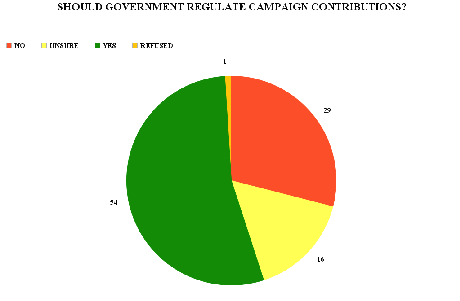
A few days ago, the United States Supreme Court made a second bad decision regarding campaign finance in this country. This one, McCutcheon vs. FEC, removed limits on the amount of money an individual can donate to campaigns in a single two-year electoral period. They based their decision on the same flawed "money is speech" concept they used in the Citizens United vs. FEC decision.
The decision left intact the limits of how much an individual can give to a single candidate, but probably only because the lawsuit was not challenging that. I expect rich donors (egged on by the Republicans) will soon be challenging that, since the same concept could be used to overturn that. In fact, it has already started. Newt Gingrich has said that all campaign limits should be eliminated.
But the Republicans should be careful about trying to eliminate all limits on campaign donations. They already oppose many things a majority of the public wants (no cuts to Social Security, raising the minimum wage, protecting Medicare, taxing the rich & corporations, immigration reform, job creation legislation, equal pay for women, etc.). They don't need another issue to put them at odds with the voting public.
And this issue would do just that. The Rasmussen Poll questioned 1,000 likely voters on April 3rd and 4th (with a poll margin of error of 3 points) -- and they found that only 29% of the public wants to see campaign giving limits eliminated. But 54% say the government should regulate campaign donations. The public doesn't want their politicians bought (and controlled) by the rich (or the corporations).

